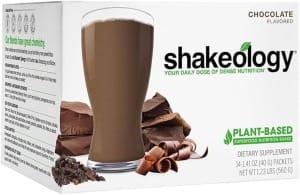As researchers in longevity science, we're always intrigued by dietary approaches that may impact health and lifespan. The ketogenic diet has garnered significant attention in recent years, and keto diet shakes have emerged as a convenient way to adhere to this low-carb, high-fat eating plan. In this article, we'll explore the science behind keto diet shakes and their potential benefits for those following a ketogenic lifestyle.

Key takeaways:
• Keto diet shakes can help maintain ketosis by providing high fat and low carb nutrition
• Meal replacement shakes may aid weight loss and metabolic health on a keto diet
• Protein shakes can support muscle maintenance and recovery for keto dieters
• Quality ingredients and balanced macronutrients are crucial for effective keto shakes
Keto diet meal replacement shakes: A convenient ketosis solution
For those following a ketogenic diet, maintaining the strict macronutrient ratios can be challenging, especially when on-the-go. Keto diet meal replacement shakes offer a convenient solution to this problem. These shakes are formulated to provide a high fat content (typically 70-80% of calories), moderate protein (15-20%), and very low carbohydrates (5-10%).
Research has shown that adhering to these macronutrient ratios can induce and maintain a state of nutritional ketosis, where the body primarily burns fat for fuel instead of carbohydrates[1]. A study published in the journal Nutrition & Metabolism found that meal replacement shakes formulated for a ketogenic diet helped participants achieve and maintain ketosis more effectively than traditional low-carb diets[2].
Dr. Dominic D'Agostino, a leading researcher in ketogenic diets, states: "Ketogenic meal replacement shakes can be an excellent tool for initiating and maintaining nutritional ketosis, especially for those with busy lifestyles or who struggle with meal preparation."
The potential benefits of keto diet shakes for weight loss and metabolic health
One of the primary reasons people turn to ketogenic diets is for weight loss. Keto diet shakes may support this goal by providing a controlled calorie intake while maintaining ketosis. A randomized controlled trial published in the Journal of Nutrition found that participants using ketogenic meal replacement shakes lost more weight and body fat compared to those following a standard low-fat diet[3].
Beyond weight loss, keto diet shakes may offer additional metabolic benefits. Research has shown that ketogenic diets can improve insulin sensitivity and reduce inflammation, both of which are important factors in metabolic health and longevity[4]. A study in the journal Obesity Reviews found that ketogenic diets, including those using meal replacement shakes, led to greater improvements in glycemic control and cardiovascular risk factors compared to low-fat diets[5].
Keto diet protein shakes: Supporting muscle health and recovery
While the ketogenic diet is primarily high in fat, adequate protein intake remains crucial, especially for those engaging in regular exercise. Keto diet protein shakes can help meet this need without compromising ketosis.
A study published in the Journal of the International Society of Sports Nutrition found that athletes following a ketogenic diet who supplemented with whey protein shakes maintained muscle mass and performance better than those who didn't use protein supplements[6]. This suggests that keto-friendly protein shakes may be particularly beneficial for active individuals on a ketogenic diet.
Dr. Jeff Volek, a prominent researcher in low-carbohydrate nutrition, notes: "Protein is essential for maintaining muscle mass and supporting recovery, even on a ketogenic diet. Keto-friendly protein shakes can be an effective way to meet protein needs without excessive carbohydrates."
Choosing the right keto diet shake: Quality matters
Not all keto diet shakes are created equal. The quality of ingredients and overall nutritional profile can significantly impact their effectiveness and health benefits. When selecting a keto diet shake, consider the following factors:
- Fat sources: Look for shakes that use high-quality fats such as MCT oil, coconut oil, or avocado oil.
- Protein quality: Opt for complete protein sources like whey, casein, or plant-based blends.
- Fiber content: Adequate fiber can support digestive health and help maintain ketosis.
- Micronutrients: Choose shakes fortified with essential vitamins and minerals to prevent deficiencies.
- Sweeteners: Avoid artificial sweeteners and opt for natural, low-carb options like stevia or monk fruit.
A study in the journal Nutrients found that the source and quality of fats in ketogenic diets can influence metabolic outcomes and overall health[7]. This underscores the importance of choosing keto diet shakes with high-quality ingredients.
The future of keto diet shakes in longevity research
As longevity researchers, we're intrigued by the potential long-term effects of ketogenic diets and keto diet shakes on health span and lifespan. While more research is needed, preliminary studies suggest that ketosis may have neuroprotective effects and could potentially influence cellular aging processes.
Dr. Eric Verdin, President of the Buck Institute for Research on Aging, states: "The ketogenic diet shows promise in various aspects of health and longevity. As we continue to study its effects, convenient options like keto diet shakes may play a role in helping people adhere to this dietary approach long-term."
In conclusion, keto diet shakes offer a convenient and potentially effective way to support a ketogenic lifestyle. Whether used as meal replacements or protein supplements, these shakes can help maintain ketosis, support weight loss, and potentially offer metabolic benefits. However, it's crucial to choose high-quality products and consider individual nutritional needs. As always, we recommend consulting with a healthcare professional before making significant dietary changes.
For those interested in exploring the potential benefits of keto diet shakes, we encourage you to stay informed about the latest research and choose products that align with your health goals. Remember, while dietary supplements can be helpful tools, they should be part of a comprehensive approach to nutrition and overall health.
References:
[1] https://www.ncbi.nlm.nih.gov/pmc/articles/PMC6472268/
[2] https://nutritionandmetabolism.biomedcentral.com/articles/10.1186/s12986-020-00446-y
[3] https://academic.oup.com/jn/article/148/10/1517/5086657
[4] https://www.ncbi.nlm.nih.gov/pmc/articles/PMC6472268/
[5] https://onlinelibrary.wiley.com/doi/full/10.1111/obr.12230
[6] https://jissn.biomedcentral.com/articles/10.1186/s12970-018-0236-9













Member discussion